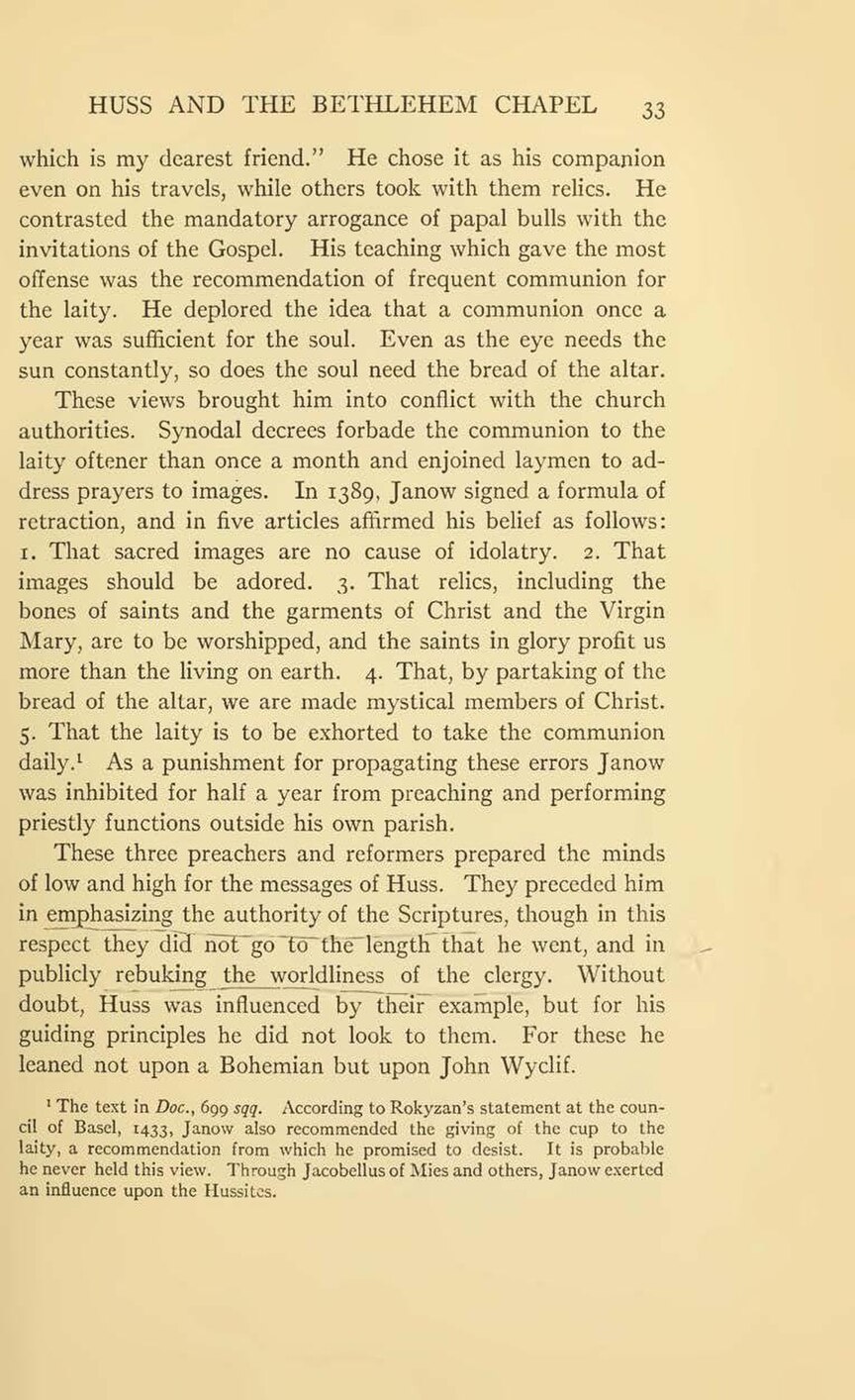which is my dearest friend.” He chose it as his companion even on his travels, while others took with them relics. He contrasted the mandatory arrogance of papal bulls with the invitations of the Gospel. His teaching which gave the most offense was the recommendation of frequent communion for the laity. He deplored the idea that a communion once a year was sufficient for the soul. Even as the eye needs the sun constantly, so does the soul need the bread of the altar.
These views brought him into conflict with the church authorities. Synodal decrees forbade the communion to the laity oftener than once a month and enjoined laymen to address prayers to images. In 1389, Janow signed a formula of retraction, and in five articles affirmed his belief as follows: 1. That sacred images are no cause of idolatry. 2. That images should be adored. 3. That relics, including the bones of saints and the garments of Christ and the Virgin Mary, are to be worshipped, and the saints in glory profit us more than the living on earth. 4. That, by partaking of the bread of the altar, we are made mystical members of Christ. 5. That the laity is to be exhorted to take the communion daily.[1] As a punishment for propagating these errors Janow was inhibited for half a year from preaching and performing priestly functions outside his own parish.
These three preachers and reformers prepared the minds of low and high for the messages of Huss. They preceded him in emphasizing the authority of the Scriptures, though in this respect they did not go-to the length that he went, and in publicly rebuking the worldliness of the clergy. Without doubt, Huss was influenced by their example, but for his guiding principles he did not look to them. For these he leaned not upon a Bohemian but upon John Wyclif.
- ↑ The text in Doc., 699 sqq. According to Rokyzan’s statement at the council of Basel, 1433, Janow also recommended the giving of the cup to the laity, a recommendation from which he promised to desist. It is probable he never held this view. Through Jacobellus of Mies and others, Janow exerted an influence upon the Hussites.
